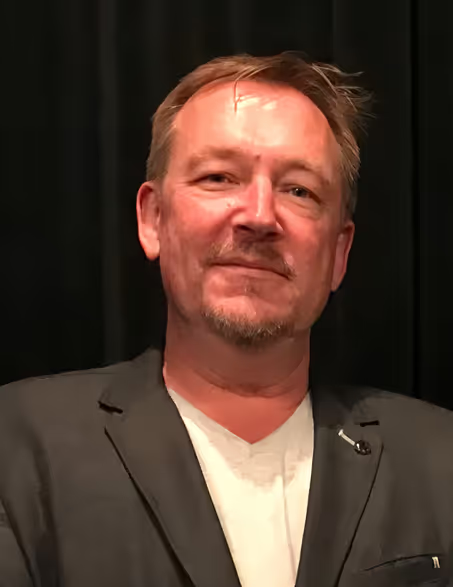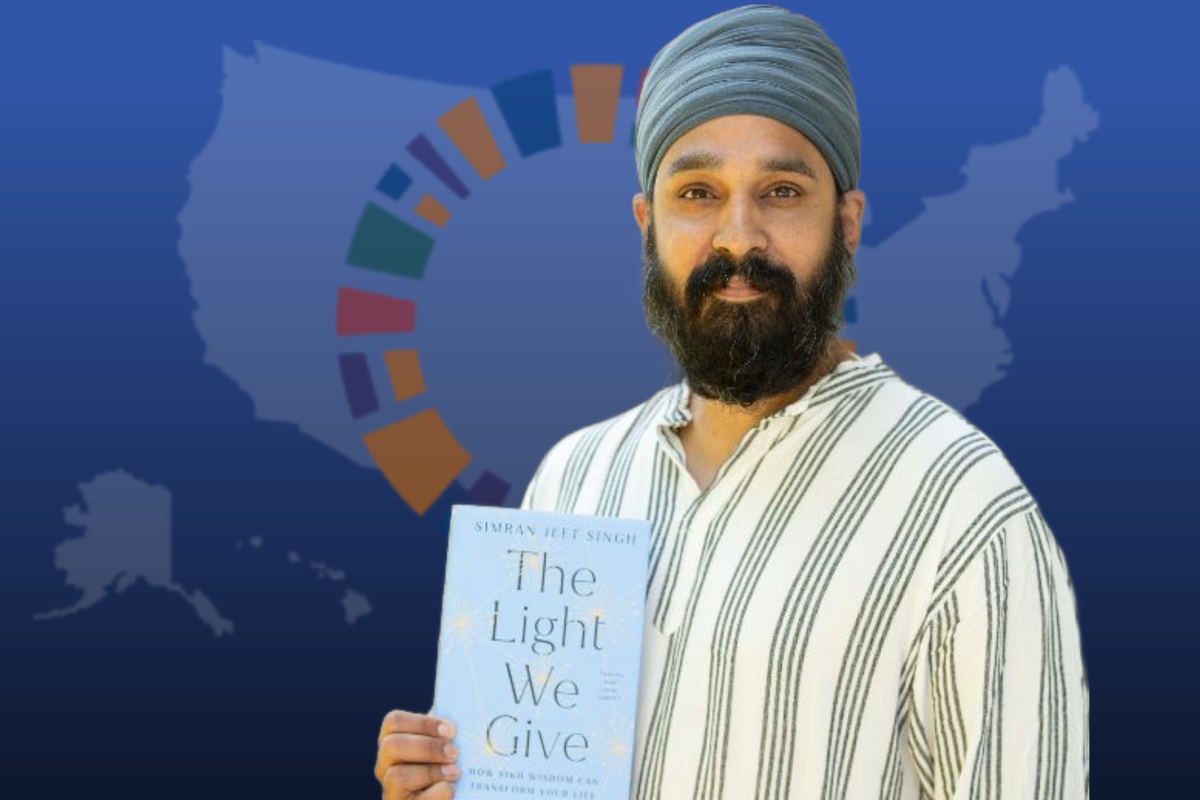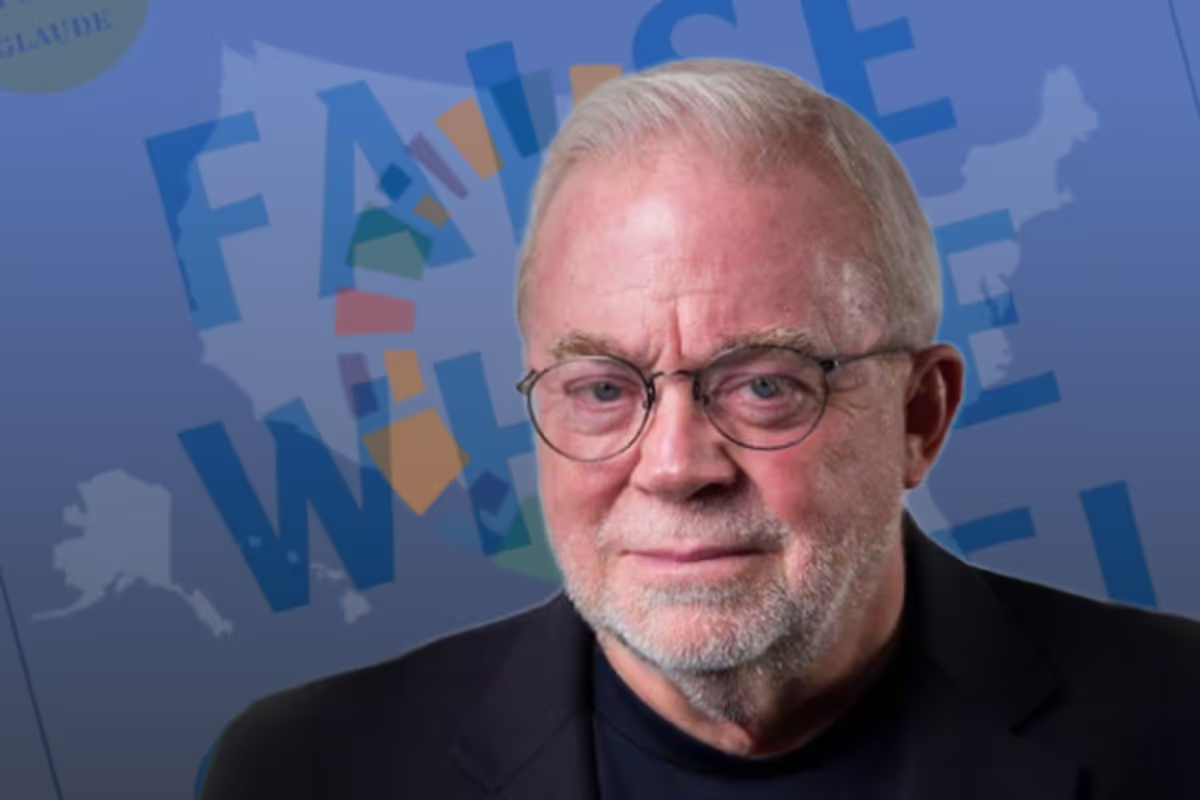
State of Belief
Jim Wallis and a Moral Budget: The June 10th Procession at the Capitol
This week on The State of Belief, you’ll hear a powerful conversation with Rev. Jim Wallis. We dive deep into his upcoming event on June 10th at the Capitol, A Pentecost Witness for a Moral Budget, which aims to address critical issues surrounding the Reconciliation Bill and its potential cuts to vital programs like Medicaid and SNAP.
Just a couple of highlights:
- How Can Faith and Action Unite? Jim connects the Christian tradition of Pentecost and the current moment we find ourselves in. Just as the early followers of Jesus found courage to speak out in the streets, we too are called to rise above fear and take action. This event is not just a protest; it’s a public witness to our values as people of faith, transcending partisan politics.
- Why is the Budget a Moral Document? Rev. Wallis emphasizes that the choices we make in our budgets reflect our values and priorities as a society. So we’re not just advocating for specific programs; we’re advocating for a moral budget that aligns with the teachings of Jesus and supports the most vulnerable among us.
- What Does a Call to Collective Action Look Like? There are still ways for all of us to engage in the democratic process. Whether you can attend the event in person or not, there are numerous ways to participate. From writing letters to your senators to mobilizing your community, every action counts. Jim reminds us that moments like these can change the narrative and impact votes. Together, we can show that faith communities are not silent but are actively engaged in shaping a more just and compassionate society.
You’ll also hear an excerpt from Sen. Cory Booker’s marathon Senate speech a couple of months ago, where he and Sen. Chris Coons raised up Scripture as a guide toward the values our federal budget should truly embody as a moral document.
I invite you to listen to this episode and join us in this important movement. Let’s come together to advocate for a budget that reflects our shared values and supports those in need. The Pentecost Witness for a Moral Budget is Tuesday, June 10th, at the US Capitol in Washington, DC. Complete details are at https://sites.google.com/georgetown.edu/pentecostjustice?usp=sharing
Rev. Jim Wallis is the founder of Sojourners Magazine and the Sojourners Christian Community, and has been at the forefront of bringing together faith and social justice activism for decades, advocating for issues such as racial equality, poverty alleviation, peace, and environmental stewardship as a preacher, teacher,
best-selling author, and theologian. He currently serves as the founding Director of the Center on Faith and Justice at Georgetown University. Jim’s books include God’s Politics: Why the Right Gets It Wrong and the Left Doesn’t Get It, and The False White Gospel: Rejecting Christian Nationalism, Reclaiming True Faith, and Refounding Democracy.
Please share this episode with one person who would enjoy hearing this conversation, and thank you for listening!
Transcript
REV. PAUL BRANDEIS RAUSHENBUSH, HOST:
It is a great honor and I am so excited for this conversation with none other than the Rev. Jim Wallis. Reverend, welcome to the show.
REV. JIM WALLIS, GUEST:
Thank you, Paul. Always so good to be talking to you, always.
PAUL RAUSHENBUSH:
So the reason we're talking today, and I really want to focus on this, I want this to get on our listeners' radar. This is going to be really important. You are planning, along with other folks, a major event on June 10th at the Capitol. What was the impetus for this? What is it? And then we're going to get into how people can join in.
JIM WALLIS:
Yeah, this is really a moment coming up a moment coming up that we're going to respond to. And what's interesting, and you know this, all this religious history, but liturgy and legislation don't often align or resonate - nor should they. But this time they do.
So in the Christian tradition, one of our many faith traditions, my tradition, Pentecost is a season where I love the image of the disciples, early Jesus followers, hiding in an upper room because they're scared. They're being ruled by fear. they're afraid of retaliation. Sound familiar? And then, in our tradition, the Spirit comes, and they find courage, and what do they do? They go to the streets. And they speak in the streets, a public witness to the Gospel in the streets. And this just transforms them and really begins the early Church.
So this year, Pentecost Sunday is June the 8th. And we're going to do something on Pentecost Tuesday, June the 10th, because there's a bill coming to the Senate just about that time. It's called the Reconciliation Bill. Major cuts, slashes, devastating cuts to Medicaid – remember, that's care for the sick - and SNAP, feeding the hungry. So caring for the sick and feeding the hungry should not be a partisan issue.
You and I have talked a lot about our histories. My conversion passage was Matthew 25, where Jesus says, as you've done to the least of these, you've done to me. I was hungry. I was thirsty. I was naked. I was sick. I was a stranger.
PAUL RAUSHENBUSH:
I was a stranger!
JIM WALLIS:
I was an immigrant. I was in prison. It was me. I call it the “It was me” text.
PAUL RAUSHENBUSH:
We didn't know it was you.
JIM WALLIS:
Had we known it was you, we would have started a social action committee or something.
PAUL RAUSHENBUSH:
Yeah. I love what you're saying. I love this idea of being ruled by fear and then just deciding - and the image that is often used on Pentecost is like this fire coming down.
JIM WALLIS:
Yeah. Fire is the right word. I love it.
PAUL RAUSHENBUSH:
And so getting the fire inside of people and saying, okay, We're not going to be cowering in fear. We're going to show up. And so I love this idea of liturgy and legislation. I agree they should not be superimposed. We're not trying to create that. But we are saying that those of us who do follow a Christian tradition, listeners, for those of you who do follow a Christian tradition, this is an opportunity for us to show who we are.
And so what exactly are you hoping will happen on June 10th?
JIM WALLIS:
Well, fire is the right word. We need a fire now inside of us that people can see. So we're asking clergy and their congregants to come to Washington in their robes and collars. Now imagine the visual scene here outside the Congress, the Senate steps. We're going to have a procession. I'm calling it a procession, not a march. It's a procession. Clergy; we'll have church choirs there, singing; we'll have people in their stoles. Catholic Women Religious Network is all over this. So we'll have all these people of faith showing up by the hundreds, I'm hoping 500 to 1,000 actually, to say, here's who we are and we're here to support those who are the least of these, the most vulnerable, the ones Jesus taught us to protect. Regardless of your politics, This is for us a faith issue. And we're saying a budget is a moral document. A budget.
PAUL RAUSHENBUSH:
Once you hear that, you can't unhear it. The budget is a moral document - and a budget can be an immoral document. It really depends on who it's serving, how you understand it, and what we want and what we say our faith tradition demands is a moral document that reflects our values.
JIM WALLIS:
Well, think about a budget for a family, for a a business, an organization, a school. Budgets tell us who and what is important and who and what is not important.
I will give you this little back story. I am not sure I have ever shared it. Years ago, I was invited to a meeting with some Democratic senators. And they were saying, how do we talk about these issues differently? We're seen as the tax and spend liberals. And for us, it's not that. What is it?
I said, why don't you think about a budget as a moral document? So that was the first time that got talked about. Now it's a phrase that, but coined by the faith community, now on the Hill. So this is a Pentecost call for a moral budget.
PAUL RAUSHENBUSH:
And I think you are naming just some of what is in this bill. But there is just so much that is cutting services for really - you know, I was thinking about, years ago, this is a little bit of a tangent, but I was thinking about how effective the Republicans were when we were trying to expand health care access. And they said: Oh, you want death panels. And then that became the word that everybody was talking about. And everybody had to be answer a question about death panels, which was absurd, but they introduced it into the lexicon. And I'm just thinking about: No food for students, no food, you know, this budget actually has real life implications.
I'm thinking so much about what Rep. Al Green did when President Trump was giving his address. He just said, “You have no mandate!” And it's so true. He barely won. He won by a sliver. And yet here we are, these drastic cuts. And so I think it's just so important. There is no mandate to cut Medicaid, which is real lives. This is real lives we're talking about. So I just think it's so important that we show up.
And one of the things you and I have talked about for decades now, I think, is, who gets to own religion and religious morality in this country? And for years, the right tried to say, oh, we're the God people. And it's like, well, really? Are you? Based on what? And I think this is an effort in part to say, no one owns God, by the way. And certainly with what has been happening for the last four months in our country, or five months now, cannot be reflected as a moral mandate. So I think it's really important.
I think what you're trying to do, and Interfaith Alliance and myself especially is very proud to be a part of it, is just to show up with a visual reminder that no one owns religion, but certainly this budget does not reflect the religious will of the country.
JIM WALLIS:
Well, that's so well said, Paul. Let's think of this June 10th action as twofold. We want to change the vote, and change the narrative.
We have a chance to change this vote. There are Republican senators who don't want to see these Medicaid cuts. Some of them are actually Republican people of faith who think this is just wrong. And so we're hoping for some bipartisan support here. I'm talking with Senator Coons, Senator Warnock, Senator Bennett, Cory Booker, of course. And they think the time has come for a show of faith - not partisan politics, but faith - at the Senate. And so we may have some other senators alongside.
But also, change the narrative. That's so important, what you just said. The narrative is out there. There is a narrative out there that says, all Christians or most Christians support Donald Trump. those who don't are being silent. Well, neither of those is true.
We want to show, in fact, that when you count all Christians, Black Christians, and Hispanic Christians, and Asian Americans, and a number of White believers who are changing, breaking from the religious right and all of that, there's a lot of us. There are tens of millions of us. And so we're going to show up and change the narrative that a lot of us as Christians can't support all these things, because they go directly against the teachings of Jesus.
And I want to say - I'll be bold here - cutting from our budget the very people Jesus taught us to protect is literally anti-Christ. And we'll have other people of faith, Quakers are all joining us for this, and networks of Christians, whole denominations are joining us. So this is just taking off because, Paul, I think it's becoming a moment to impact the debate and to change the narrative.
PAUL RAUSHENBUSH:
Change the narrative. But what I really like about what you're saying is that this isn't just a show. This is actually to try to impact a vote. We could actually impact the vote. And there are people out there who are looking for a way to be courageous. I think Republicans - there's many Republicans out there who are really looking for a way to be courageous. And I think the hope is, here, that some of those who are more moderate would be willing to break this way, especially with the invitation of a broad coalition of Christian leaders out there. Of course, the other traditions as well, but this is particularly a Christian action.
Tell me how you envision - there's some of us who are on the East Coast, many of my listeners are across the country. Not everybody is going to be able to up and come, but do you have a landing page for this information where people can learn more about it, and maybe urge their their friends who are in Virginia or Maryland or who could go down for the day. What is the way to invite people, as many people as possible, who want to show up in a positive way?
By the way, this is by the books. You have permission to be on the Capitol. No one's being invited to break any laws. This is not a noncompliance effort, but it is, really, an effort to show up.
JIM WALLIS:
This is a witness, a public witness, like from Pentecost, going to the streets when that fire comes and that courage rises up to go to the streets. And so we've been talking to the Capitol Police. They've been very accommodating and friendly. We're going to have a lovely procession there in the Capitol area, culminating in a vigil on the steps. And so you'll have people reading. There are 2,000 verses about the poor in the Bible. 2,000 verses. People forget that.
PAUL RAUSHENBUSH:
People forget that. If you put out all the verses about the poor in the Bible, you'd have a very holey Bible. And I don't mean H-O-L-Y; I mean it would be filled with holes.
JIM WALLIS:
You may not know the story, but when I was a seminarian way back in the day, our little group, the group that became Sojourners, took an old Bible and cut out of the Bible every single reference to the poor. The prophets disappeared. the Beatitudes, so much in the Gospels, the Gospel of Luke, Mark. And when we were done, the Bible was literally in shreds. I could hardly hold it together in my hand. It was a Bible full of holes. It was a holey Bible, as you just said, not a holy Bible. And I would take it out to preach with me. And I would say, I'm just a seminarian now. I would say, brothers and sisters, this is the American Bible. It's full of holes from all we have ignored and paid no attention to and literally taken out.
So there's a new Bible out there, the Bible Society and World Vision did, that's putting all those verses back together again in the Bible, restoring all those Scriptures to the Bible. So, we'll be doing that. We'll be restoring the Scriptures. So, procession, singing. I think we may have people come with handmade signs about those verses that are so important to them. Which of those texts motivates you? So, we'll have Bible, we'll have prayer, we'll have singing. And then we'll have a real visible presence on the steps.
But let me add, Paul, that you're right. Changing a vote is possible here. It's possible. And so the last thing we're going to do after our vigil and prayer and scripture reading on the steps with some senators there to listen is to go into the Senate and have meetings face to face in robes and collars with our senators. They'll make appointments ahead of time. And so all these clergy won't just be outside, they'll be then going inside to have real conversations with senators, particularly senators who are on the edge, who are not sure, and who are open to what faith says here, not just politics.
So it's a full day of bringing our best faith tradition to the Senate and talking with senators face-to-face, who, I think, a number of them, will be willing to talk to clergy and heads of denominations and bishops and all kinds of folks who are joining us here about what it means to care for the sick and feed the hungry.
PAUL RAUSHENBUSH:
You know, it's just so important to remember that a lot of these efforts, these programs - Medicaid, SNAP, even Social Security at its basis, and all of the protection against exploiting workers and all of that - faith communities were very involved in the creation of those. And bringing moral support and political pressure to legislators and imagining this, part of this is like this continuity.
There is a great tradition in America of faith communities imagining a better world. We have both things going on at the same time. You and I know this very well. But it's not as though we're coming in at this end point and saying, oh, let's do something new with faith. Actually, we're continuing an amazing tradition that is a through-line of people motivated by their faith to end slavery, to invite women to the vote. There were always faith people at any one of these moments, and we have to decide for ourselves, this is our moment: How are we going to show up as faith people? And it's just really important to recognize we're not innovating something new here. What we are is taking the baton and moving it into this moment and saying, this is now our race to continue, and invite as many people as possible into it.
JIM WALLIS:
To make that historical point that you just did is so important. Most of our social movements in this country have been animated by people of faith. It's never just people of faith, but all these movements - civil rights, of course, and the early women's suffrage movements and abolition of slavery - these were faith communities at the core and center of these.
Now, right now, let's bring it up to date with our history. We have a Pope Leo. A new Pope Leo. And what's in a name? What's in a name? A lot. So, when Pope Francis, just before he chose his name, he was elected sitting next to a colleague from Latin America who said, don't forget the poor. And that's what decided him to choose Francis. And that name, his name, Francis, has transformed the Church and the world.
Now, this new pope from Chicago, a guy named Bob from Chicago…
PAUL RAUSHENBUSH:
I’ll just interject, the big drama right away was like, is he a Sox fan or is he Cubs fan? Lots of arguing about that, but that's not the point you're trying to make. But it was just funny, this idea of a homegrown guy and the people in Chicago are fighting over which baseball team he is.
JIM WALLIS:
Well, to be a White Sox fan, which apparently he was, even a Cubs fan, is to believe in impossible faith right there. But then he was chosen, the first American pope chosen, was chosen despite his being an American. The cardinal said he was the least American of all the other American officials who were there. He's lived most of his life in the global south, in Peru, Peruvian citizen. He began his priesthood in the hills of Peru with the poor and marginal. And so he brings a whole different perspective.
And now we're all learning who Leo XIII was, who he named himself after. He's been called the father of social justice. And others want to make social justice a bad word now, as you know well. But he laid the foundations for what we're calling Catholic social teaching. He laid those foundations. So here's this Pope. He didn't call himself Francis II. He called himself Pope Leo XIV. And he was just, as you say, on the side of workers who were exploited in the industrial revolution, the poor, the vulnerable. That's where he picks up on Francis' legacy. But Leo is going to be a voice now, a voice in this country because he's a global pope, but he comes from the south side of Chicago.
PAUL RAUSHENBUSH:
It's very profound moment. And there's been a lot of spin, and more conservative Catholics are really trying to spin this in a different way. And he toes the Catholic line on on issues like abortion, and LGBTQ, we're waiting to see. But on issues of social teachings around the poor and around… It's not the porn in the abstract. It's how should the Church intersect with things like legislation. And it gets very tactical and it gets very particular. So I think that's a really interesting kind of background to this.
I know you're talking to some potential bishops to join on June 10th. But what I really want to close out with is, saying that this is a big invitation to my listeners, to all of our listeners on The State of Belief, but more broadly to the American people. Even if you can't make it to DC on that day, I can imagine using that image and using the event of June 10th and all of these passages on the poor read, and this great image of all these clergy using that maybe to make a call to your senator, maybe to make a call to your representative and say, I just want you to know this is where I show up and I feel it's really important that we have a moral budget that represents my faith beliefs.
JIM WALLIS:
This is the moment, as you said. This is a moment, and I think the way it's come together so quickly, it's really, deeply encouraged me. I have these calls: yesterday, again this morning, Gamaliel just joined, a big network; all our faith networks want to join, denominations. I've never seen something grow this fast. And I think it's because it's a moment. It's a moment for finding our courage, having that fire in us, and we'll show it on the Senate grounds, but also in a way that could change things, that could make this budget more moral.
I think we can maybe do that, and we’ve got to act like we can do that, and it will change the perception of what religious leaders are saying or not saying. Because we're saying, here we are in this Christian event; but others joining us is saying, we're going to stand with the teachings of Jesus here. We’re going to stand with what he said about how you treat the sick and the hungry. And so that goes beyond our politics. And I think there are a number of senators who are willing to see it that way. But the presence of all these clergy in their robes and collars will make that absolutely clear.
So invitation, Paul, is the right word. Invite all of the people who are part of your wonderful network to come. There's going to be room for all of us there. And there will be a chance to write letters to senators, even if you can't come. Write letters and make calls. And then there's a follow up to that. It'll be a couple of weeks, then, before they finally vote. So we'll have a chance, even back home at some of their offices. some of their key places around the country. So I'm feeling, Paul, the moment that you just described as something like I haven't felt before in a long time. And it's the right time. for a moment like this to come for our faith communities.
PAUL RAUSHENBUSH:
And it's just really powerful, this is four days before the president has his plan on his birthday to spend millions and millions and millions of dollars to have a military parade so that he can look impressive, in what he views as impressive, and having the military as a prop for himself. And I think this is the exact opposite. And so, all of these things are going to happen in close proximity to one another.
And we recognize the power of showing up in this way and having a procession of the kind that we're going to have, versus demanding, it's a little like a spoiled boy demanding a parade for himself on his birthday and using the military who have rightful pride to be 250 years old, but using them as a prop. And spending millions and millions of dollars, which apparently we can't feed schoolchildren with because the little wannabe dictator Bonespurs needs his parade. So I think it's really important to have also in mind that this is a procession and a witness in the context of the broader things that are going on that are very dangerous.
JIM WALLIS:
And to teach us, again, to help us remember that moments can change things. We're always worried about results, and we can't control results, but moments can change things. So this will be a moment coming before that. very different kind of authoritarian moment just days afterwards. But I think the visibility, the visual power of this at the Capitol on that day will be clear.
And I believe that in God's timing. Thomas Merton always told us, you can never know what God's going to do, but you can decide what you're going to do. And God uses that in ways we can't even control, comprehend, predict, or understand. But this is a moment. I'm feeling this moment to be a decisive one. So I want to invite everyone to come. You'll be with lots of friends and colleagues and fellow believers. And we're going to have just, I think, a very special time.
PAUL RAUSHENBUSH:
And just to be clear, Rev. Wallis is speaking, but he is alongside so many other leaders from different backgrounds, different traditions within the Christian Church who are all joining together. So this is an opportunity for us to show up together. Rev. Wallis, I am so grateful for you, for talking with us, and for all that you are doing for the country in this crucial moment - and really excited to be there and experience some Pentecostal fire and courage alongside you.
JIM WALLIS:
Well, I love talking to you, as I said before, always, but this one especially. And that you’re involved in this means a great deal to me. This is us together. When you look at all the logos of the groups who are doing this, whole denominations and networks, Black churches, Hispanic, Asian American, mainline denominations, evangelical Christians - this is a time when we're going to be all together.
PAUL RAUSHENBUSH:
Well, thank you so much for joining us on The State of Belief. We really appreciate it.
JIM WALLIS:
Bless you, my brother.
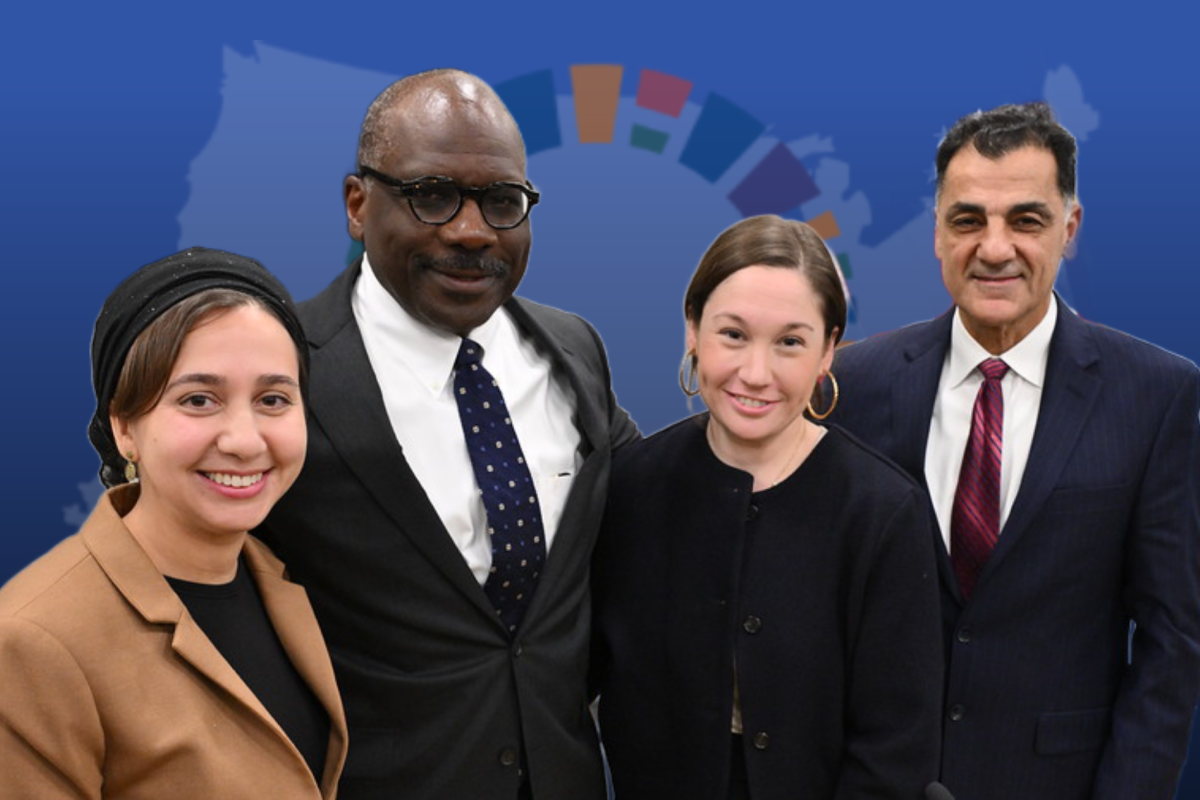
Jewish-Muslim Solidarity: Moral Witness in Pressing Times
Highlights from a Capitol Hill briefing on Jewish-Muslim solidarity as a defense against authoritarianism, featuring prominent Muslim and Jewish leaders and lawmakers. With discussion and inspiration from host Rev. Paul Brandeis Raushenbush and interfaith organizer Maggie Siddiqi.
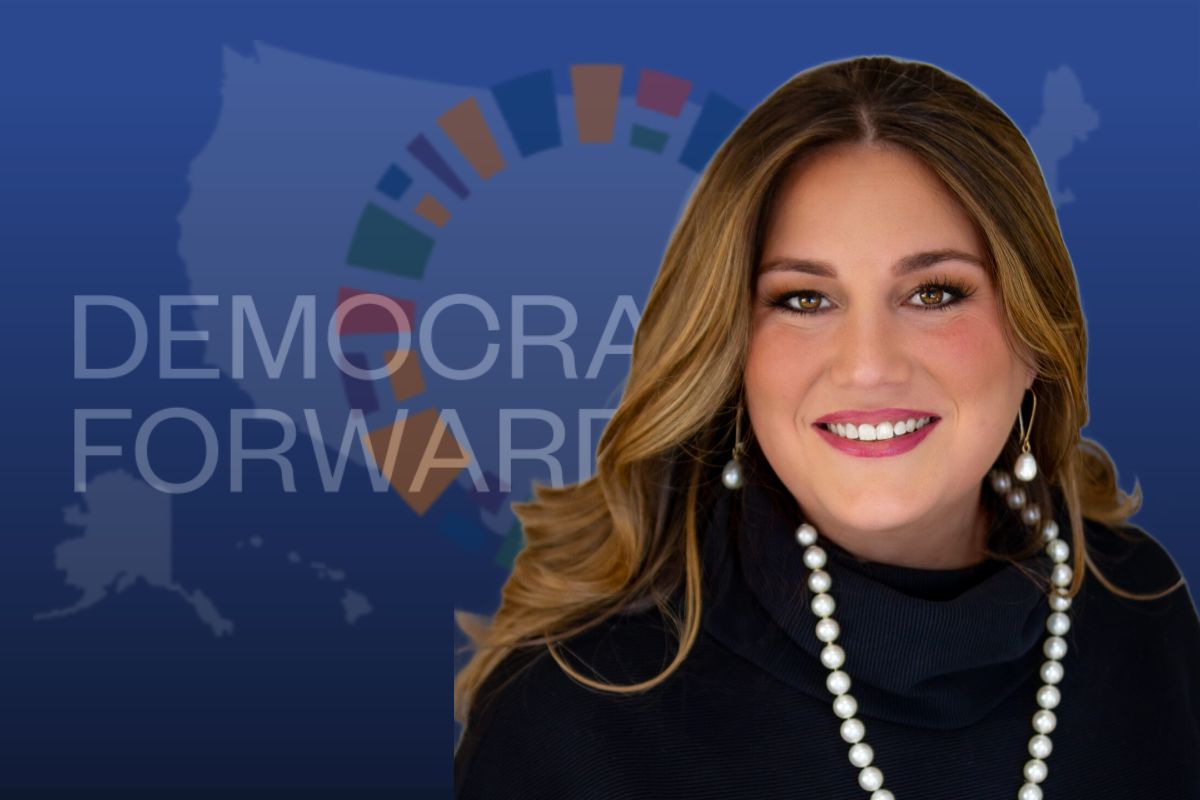
We The People v Trump with Democracy Forward's Skye Perryman
Host Paul Brandeis Raushenbush talks with Democracy Forward President and CEO Skye Perryman about the first year of the second Trump administration. Skye describes how, amid a flood of policies and orders emanating from the White House, Democracy Forward's attorneys have brought many hundreds of challenges in court - and have prevailed in a great majority of them.
